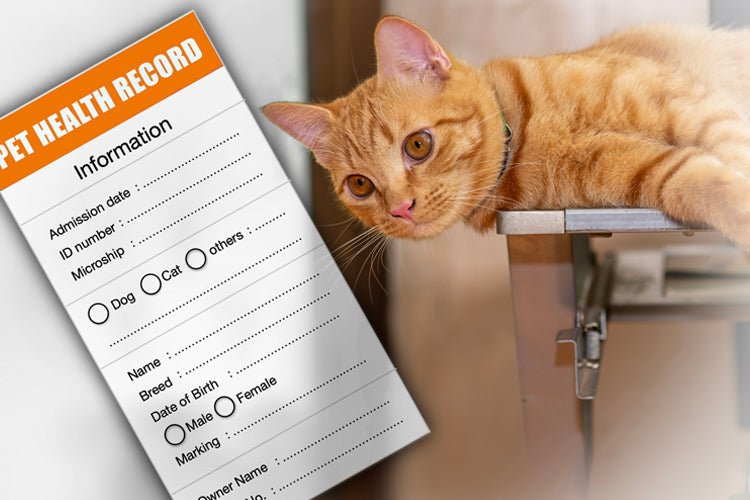Can Cats Get Sick from a Dirty Litter Box?

Many cat parents underestimate the impact of a dirty litter box, chalking it up to inconvenience rather than a health hazard. The reality is, yes, a filthy litter box can make your cat sick, and in severe cases, it could even be life-threatening. That's why keeping things clean isn't just a preference; it's a responsibility. For busy cat owners, a modern solution like the Meowant SC01 Self-Cleaning Cat Litter Box, makes a world of difference. It automates cleanliness and peace of mind, so your cat stays healthy and your home stays fresh.
How Dirty Litter Boxes Affect Your Cat's Health
Many pet owners underestimate the risks, assuming their cat will simply "deal with it." But the truth is, a neglected litter box can lead to infections, respiratory problems, and even long-term behavioral issues. Let's break down exactly how a filthy litter box can harm your feline friend.
1. Bacterial Infections: A Breeding Ground for Disease
When waste sits in the litter box for too long, it becomes a playground for harmful bacteria. Cats are prone to UTIs, and bacteria from soiled litter can easily enter their urinary tract, causing pain, frequent urination, and even blockages (which can be life-threatening). Then there's toxoplasmosis, a serious parasitic infection that thrives in unclean litter. The longer waste is left behind, the more time these harmful organisms have to multiply. It's not just unpleasant—it's dangerous. And if you're asking “can a dirty litter box kill a cat?”, the unfortunate answer is yes, if infections go unnoticed and untreated.
2. Respiratory Problems: The Invisible Threat of Ammonia
Cat urine breaks down into ammonia, a pungent, toxic gas that can wreak havoc on your cat's respiratory system. Prolonged exposure to ammonia fumes can irritate your cat's respiratory tract, especially if they're young, old, or already dealing with conditions like feline asthma. In extreme cases, this buildup can lead to chronic respiratory illness.
3. Behavioral Issues: When Your Cat Starts Protesting
If their litter box becomes too filthy, they'll start avoiding it altogether. That leads to problems like peeing outside the box, overgrooming from stress, or even holding in urine—which can cause blockages or infections. A dirty box isn't just a physical health issue—it's psychological too. Your cat might seem “difficult” when the real issue is simple: they're stressed and uncomfortable. That's why regular cleaning—or better yet, a smart system like the Meowant self-cleaning cat litter box can prevent a host of stress-induced behaviors.
Can a Dirty Litter Box Kill a Cat? The Shocking Truth
Let's cut to the chase - yes, in extreme cases, a filthy litter box can be deadly. While most cats just suffer through dirty conditions, prolonged neglect can lead to:
• Kidney failure from chronic UTIs that go untreated
• Sepsis when bacterial infections enter the bloodstream
• Toxic shock from severe ammonia exposure
• Fatal complications of toxoplasmosis in vulnerable cats
The real danger? These conditions often develop silently. By the time you notice symptoms, your cat could be in crisis. If your cat stops eating, seems lethargic, or shows urinary distress, get to the vet immediately - this is literally life or death.
Litter Box Cleaning: The Bare Minimum Your Cat Deserves
Here's the hard truth - if you're not cleaning properly, you're failing your cat. The absolute non-negotiables:
- Scoop waste 2x daily (yes, really - would you use a filthy toilet?)
- Full scrub-down weekly with mild soap (dump all litter, disinfect)
- Complete replacement of old boxes every 6-12 months
Pro tip: Set phone reminders until it becomes habit. Better yet, invest in a self-cleaning box. Your cat's health isn't worth gambling with.
Tired of Litter Box Duty? The Meowant Self-Cleaning Solution
What if your litter box could clean itself? The Meowant SC01 Self-Cleaning Cat Litter Box isn't just a luxury; it's a game-changer for busy (or just lazy) cat owners who still want the best for their pets.
Why This Box is Worth It
- Automatic Cleaning: No more holding your breath while scooping—the Meowant detects when your cat exits and removes waste within minutes, slashing bacteria and odor.
- Smart Sensors: Unlike cheap automatic boxes, this one actually works—it won't freak out your cat with sudden noises or get tricked by a curious paw.
- Built for Multi-Cat Homes: Large enough for even Maine Coons, with a high-capacity waste drawer so you're not emptying it daily.
- Easy Maintenance: The removable parts are dishwasher-safe (yes, really), and the smooth surfaces don't trap lingering smells.
Litter Box Hygiene: Don't Get Complacent
Even with a self-cleaning litter box, a little routine care goes a long way. I still recommend scooping out any lingering clumps or spills daily, it keeps things fresh and ensures the system works smoothly. Every two to three weeks, I do a full litter replacement and wipe down the interior.
Proper placement is key: put the litter box in a well-ventilated, low-traffic area. This helps reduce odor and makes the space more comfortable for your cat. Also, keep an eye on your cat's habits. Changes like avoiding the box or straining to urinate can be early signs of illness. Catching issues early means faster treatment and less stress for both of you.
Final Thoughts
A dirty litter box isn't just gross—it's a health hazard. If you're tired of the chore (or just bad at remembering it), a self-cleaning box isn't an indulgence—it's an investment in your cat's wellbeing (and your sanity).
The Meowant SC01 self-cleaning litter box makes it stupidly easy to do right by your cat. No more guilt, no more gagging. Just a clean box, happy cat, and less work for you.
